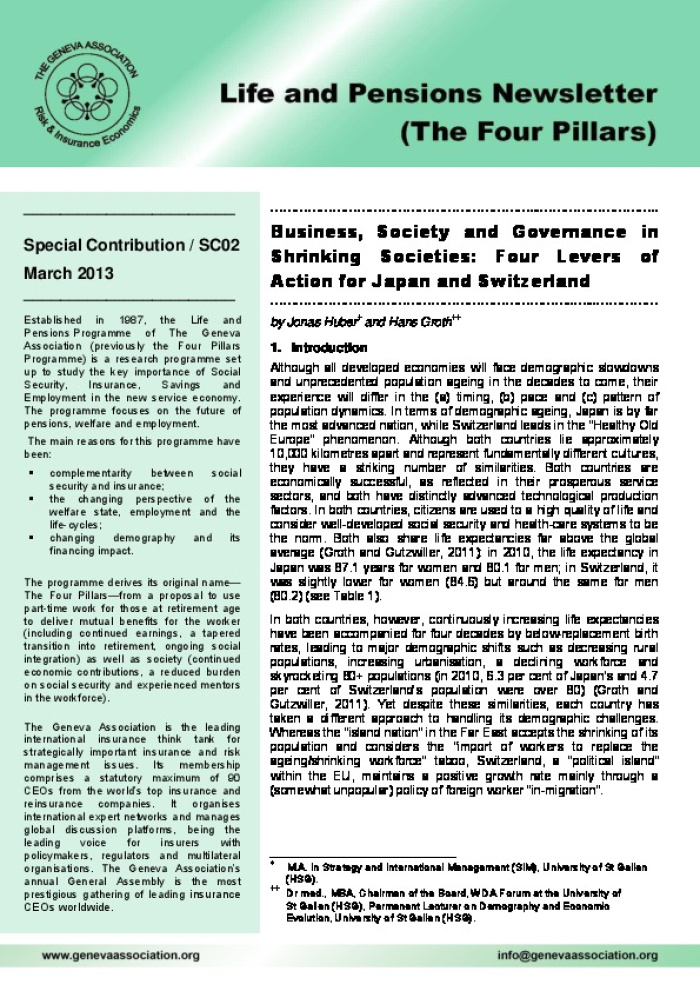Business, Society and Governance in Shrinking Societies: Four Levers of Action for Japan and Switzerland

Although all developed economies will face demographic slowdowns and unprecedented population ageing in the decades to come, their experience will differ in the (a) timing, (b) pace and (c) pattern of population dynamics. In terms of demographic ageing, Japan is by far the most advanced nation, while Switzerland leads in the "Healthy Old Europe" phenomenon. Although both countries lie approximately 10,000 kilometres apart and represent fundamentally different cultures, they have a striking number of similarities. Both countries are economically successful, as reflected in their prosperous service sectors, and both have distinctly advanced technological production factors. In both countries, citizens are used to a high quality of life and consider well-developed social security and health-care systems to be the norm. Both also share life expectancies far above the global average. In both countries, however, continuously increasing life expectancies have been accompanied for four decades by below-replacement birth rates, leading to major demographic shifts such as decreasing rural populations, increasing urbanisation, a declining workforce and skyrocketing 80+ populations. Yet despite these similarities, each country has taken a different approach to handling its demographic challenges.
Based on extensive desk research and 36 interviews with senior executives and labour market experts in Japan and Switzerland, this paper proposes four areas for action tailored specifically to these two countries but potentially useful for wider application.




